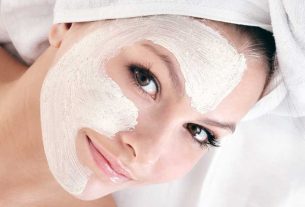Free radicals are unstable molecules that arise as a result of the burning of oxygen by cells, forming a type of oxygen that, when in excess, can react with proteins, lipids and DNA of healthy cells, causing oxidative stress and damage to these cells, which can accelerate the body’s aging process and contribute to the development of diseases such as cancer, Alzheimer’s, Parkinson’s, diabetes or arthritis, for example.
Therefore, the fewer free radicals, the younger and healthier the body. However, as the body ages naturally, the ability to combat free radicals and their effects on the body becomes less.
Therefore, to reduce the excessive formation of free radicals and their effects on the body, it is important to follow a diet rich in antioxidant foods, practice physical activity and avoid smoking or consuming alcoholic beverages regularly.

How free radicals are produced
Free radicals are naturally produced by the body due to cellular metabolism, however, some factors can increase their production and include:
- Cigarette;
- Alcohol;
- Ultraviolet radiation;
- X-ray exposure;
- Air pollution;
- Pesticides;
- Stress;
- Excessive consumption of fatty or fried foods;
- Chemical food additives.
Furthermore, occupational exposure to substances containing asbestos or vinyl chloride also increases the production of free radicals, increasing the risk of developing diseases.
Effects on the body
Free radicals, when generated by the body through a normal process of body metabolism or through exposure to substances such as cigarettes, alcohol, radiation or pollution, for example, can cause damage to the body, aging of the skin and increase the risk of developing diseases such as :
- Atherosclerosis;
- High pressure;
- Diabetes;
- Emphysema;
- Parkinson’s or Alzheimer’s disease;
- Inflammatory diseases such as arthritis or lupus;
- Macular degeneration.
Furthermore, excess free radicals can lead to the development of various types of cancer, due to damage to the DNA of cells.
How to protect yourself
To prevent the excessive formation of free radicals and protect yourself from the damage they can cause to the body, some measures are important, such as:
- Apply sunscreen to your face and body daily;
- Avoid sun exposure between 11am and 4pm;
- Avoid smoking and drinking alcoholic beverages;
- Avoid the consumption of fatty foods, fried foods, or processed foods;
- Practice physical activities regularly.
Furthermore, it is important to consume antioxidant foods daily, which help fight free radicals, such as red fruits, such as raspberries or guava, citrus fruits rich in vitamin C, such as orange or acerola, vegetables such as broccoli or beetroot and dried fruits, for example. example. Check out the complete list of antioxidant foods.
Bibliography
- SHARMA, G. N.; GUPTA, G.; SHARMA, P. A Comprehensive Review of Free Radicals, Antioxidants, and Their Relationship with Human Ailments. Crit Rev Eukaryot Gene Expr. 28. 2; 139-154, 2018
- DAVIES, K. J. A. Free radicals and redox regulation in ageing. Free Radic Biol Med. 134. 688-689, 2019
- KLAUNIG, JE Oxidative Stress and Cancer. Curr Pharm Des. 24. 40; 4771-4778, 2018
- POPRAC, P.; et al. Targeting Free Radicals in Oxidative Stress-Related Human Diseases. Trends Pharmacol Sci. 38. 7; 592-607, 2017
- ALKADI, H. A Review on Free Radicals and Antioxidants. Infect Disord Drug Targets. 20. 1; 16-26, 2020
- LUSHCHAK, VI Free radicals, reactive oxygen species, oxidative stress and its classification. Chem Biol Interact. 224. 164-75, 2014
- KEHER, JP; KLOTZ, LO Free radicals and related reactive species as mediators of tissue injury and disease: implications for Health. Crit Rev Toxicol. 45. 9; 765-98, 2015
- PEÑA-BAUTISTA, C.; et al. Free radicals in Alzheimer’s disease: Lipid peroxidation biomarkers. Clin Chim Acta. 491. 85-90, 2019

Sign up for our newsletter and stay up to date with exclusive news
that can transform your routine!
Warning: Undefined array key "title" in /home/storelat/public_html/wp-content/plugins/link-whisper-premium/templates/frontend/related-posts.php on line 12
Warning: Undefined array key "title_tag" in /home/storelat/public_html/wp-content/plugins/link-whisper-premium/templates/frontend/related-posts.php on line 13




